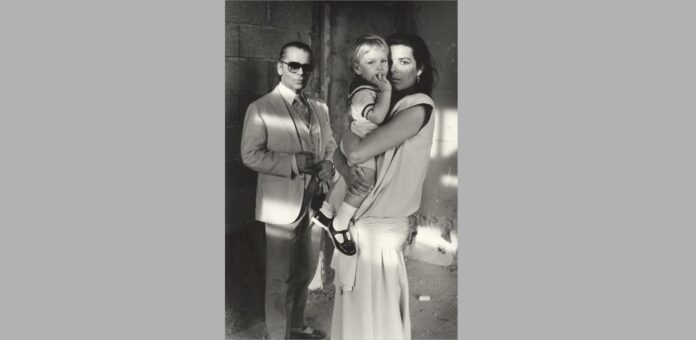In celebration of the 100th birthday of June Newton, aka Alice Springs, over 200 photographs will be displayed throughout the entire exhibition space of the first floor of the Museum für Fotografie.
While major Alice Springs exhibitions were already hosted at HNF in 2010 and 2016, many of the photographs in this new retrospective have never been seen by the public. Extensive research into the foundation’s archives, particularly the holdings recently transferred to Berlin from the Newtons’ apartment in Monaco, has provided new insight into the work of Alice Springs. Now, some of these spectacular results will be shown for the first time as vintage or exhibition prints.
Alice Springs: June Newton as a Photographer
June Newton started working in 1970 as a professional photographer under the name Alice Springs, focusing mainly on portraiture. It all started with a case of the flu: when Helmut Newton fell ill in 1970, his wife June came to the rescue. He explained to her how to use his camera and light meter, and she took his place in shooting the advertising image for the French cigarette brand Gitanes in Paris. This portrait of a model smoking launched the new career of the former Australian stage actor, who had little chance of acting in France due to the language barrier. In the wake of that initial success, José Alvarez, then running an ad agency in Paris, arranged commissions for her to shoot ads for pharmaceutical products. Later, as head of the publishing house Editions du Regard, Alvarez published the first book of portraits by Alice Springs in 1983.
Alice Springs shot many portraits from the mid-seventies onward. Her images are full of empathy, conveying her characteristic blend of curiosity and understanding for the individuals she encountered over the years. In her portraits of fellow photographers – including Richard Avedon, Brassaï, Ralph Gibson, Sheila Metzner, and Robert Mapplethorpe – and celebrities such as Nicole Kidman, Isabelle Adjani, Vivienne Westwood, Liam Neeson, and Claude Chabrol, Alice Springs succeeded in capturing not only the appearance of her subjects but also their aura.
Interpretations of Individuals
Although most of the people she portrayed were part of the cultural jet set, Alice Springs was not concerned about her subjects’ social status. Her lens often zeros in on the human face, shown tightly cropped with the head and shoulders or as a three-quarter-length portrait. Her subjects look curiously, openly, and directly into her 35 mm camera. Studio shots are rare in her oeuvre; most of her portraits took place in public spaces or inside or outside her protagonists’ homes, mainly using natural light only. We encounter the entire spectrum of responses in these images: from proud poses to natural self-confidence and shy glances. Commissioned by magazines or created on her own initiative, the portraits become visual commentaries, interpretations of the sitter. At the same time, Alice Springs let the individuality of each of her subjects shine through. In doing so, she added a new and unexpected dimension to the familiar face, making it as cliché-free as possible. Her understanding of acting may have contributed to her ability to confront the human facade and look behind it simultaneously.
Equally fascinating are her portraits of her husband, which she often took during his own photo shoots. Together with Helmut Newton’s pictures of his wife and select self-portraits, they round out this comprehensive review of works. In a sense, these intimate images are an extension of the earlier joint exhibition, Us and Them. A curated excerpt from the couple’s legendary collaborative project and other mutual portraits are displayed in the rear exhibition space. The exhibition therefore comes full circle on various levels: the life and work of Helmut and June Newton were connected in the most diverse ways, and now they meet again in Berlin.
A special exhibition by the Helmut Newton Foundation at the Museum für Fotografie, Staatliche Museen zu Berlin.
Source : Museen zu Berlin










